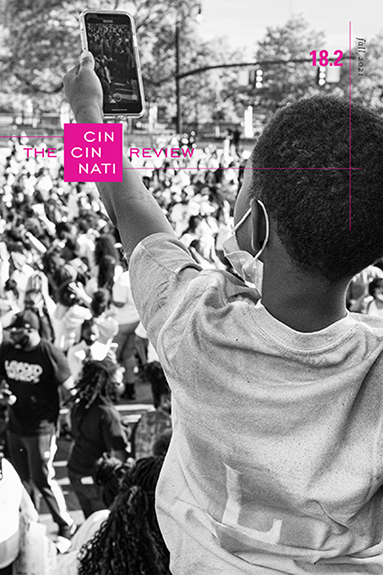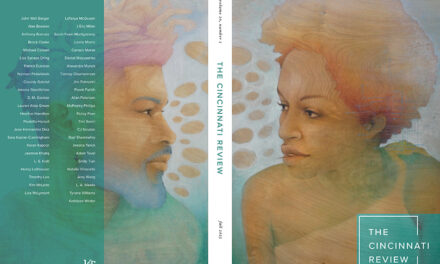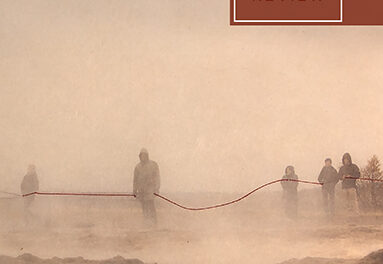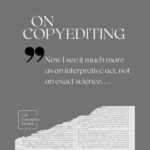Russo mimicked the pimp walk he had always seen in American movies as he went around the table and gave his four siblings an extra spoonful of oatmeal.
“What time is Mama calling?” Jean, the youngest, asked, his eyes still crusted in the corners. He always asked the same question. It was like the questions he asked about his papa, to which Russo gave the same answer: he didn’t know. None of them knew their papa, but Jean was light-skinned and the rest of them were the color of coffee beans. Naturally, it brought questions.
“Five o’clock, like every month,” Russo said. “Make sure your dèyè is here by then. Come straight home after school.” In his striped polo, khaki shorts, and brown loafers, Russo sat and watched them sop up their oatmeal with the bread, bread he had gotten from trading his sandals the day before.
Mama had been in America for a year now. In New York. Somewhere called Greenwich Village. Since she left, Russo had gotten his hands on every bootlegged film set in Manhattan. They didn’t have a TV, so he would go to a hotel in neighboring Pétion-Ville to watch them. Mama’s third cousin Nadège, a maid there, would sometimes sneak him in. She also snuck all of them in every twelfth of the month, when Mama would call. It was the day Russo was born and Mama’s favorite number. He liked to think the two were linked.
The first month Mama sent money, she said to buy a cell phone. But Uncle John John needed the money for food. There was school too. He had to pay tuition for the others’ schooling. Russo being the oldest, Mama relied on him to keep everything afloat even though they lived with her brother. Five kids between the ages of six and fourteen were more than Uncle John John’s one eye and arm could handle. He’d lost both two decades before in the ’91 coup d’état. So Russo had left secondary school, but Mama didn’t know that—and she wouldn’t if Russo’s threat to whup the kids black-and-blue meant anything. Between supplies for Uncle John John’s fresco cart, Jean’s asthma inhaler, which Mama also didn’t know about, and food, the saved expense of Russo not being in school went to better use.
Good was coming today; Russo could sense it. And outside, on Morne l’Hôpital’s mountainside, nothing said otherwise. The morning sun rose and the thick air clung. The green mountains were bright and never-ending, and below, hugging the Gulf of Gonâve, Haiti’s Port-au-Prince was flat and roaring to life.
Doors down, there was life too. Babies, two or three years old, ran naked, kicking around a ball. They grunted like hogs as their stubbed legs met the ball. They were almost as loud as the truck driving uphill bringing fresh water. Off to the side, two others watched a man as he sucked on a mango, the orange syrup running down his hand to his elbows. Then, finished with the mango, the seed white and hairless, he tossed it to the skinny stray dog who dug through the trash brought down by the last mudslide. The two babies, with empty stomachs and low-hanging lips, moved on and joined the foutbòl game.
Russo continued down the rocky slope where his concrete home and hundreds of others pressed together like jagged blocks ready to topple, where people sat on their roofs and did each other’s hair, and where kids often gave the middle finger to white men and women who smiled as they snapped photos. “A shantytown,” Russo heard one once say, whatever that meant. Then he walked past rich Pétion-Ville, where the wealthy and foreign-aiders lived in walled-off homes guarded with gates, and down to the foot of the mountain: central Port-au-Prince.
On the busy street, Russo’s legs met flat ground. He smiled. The hour walk was always worth it. It was a different world below the mountain, one where he could make money and make his way to America.
A tap-tap truck whizzed by stuffed with passengers in its metal-covered cargo bed. The rainbow-on-wheels blew dust in the air, and Russo covered his eyes. Honk after honk, beat-up cars and motorbikes sped by, filled with drivers and riders, who, when they weren’t laughing or singing along to the blasting kompa music, were cursing out the drivers beside them: “You dirty pig!” Even the men who held on to the back of the tap-tap trucks joined in, not caring they were only one bumpy turn from flying off. He’d seen it happen. A man fall off. And when he was certain the man was dead, the man got right back up and, limping, chased the tap-tap—cursing all the way.
The sidewalk was just as crowded with bodies. Vendors made shop along the path, shaded under brightly colored umbrellas. Grapefruit, avocados, bananas lay piled in baskets. Green peas and beans in sacks. Onions in mud-stained buckets. What didn’t fit in baskets, sacks, or buckets lay on blankets on the ground.
“Pen! Pen!” the leathered-skin woman said, sitting on the pavement with her bread.
“Sandals! Pantalon! Chemiz!” the man said beside her. His clothes hung on a wall.
“Bonjour, ze, Garçon?” another said, eggs held out to Russo.
Russo smiled and shook his head, and the woman sucked her teeth and waved him away.
He would miss Haiti’s capital. He would miss the noisiness and the smell of car exhaust and sweat. He would miss the shouting one second and the laughing the next. He would miss all the color. He would miss the way a vendor gave you the evil eye for not buying their eggs. But America would be worth it, he thought. Plus, Mama said there were a lot of Haitians there too. Not where she lived, this Greenwich Village, but in other parts. And if that was the case, it would be like he never left.
. . .











